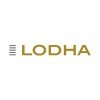Audit Executive
60+ Audit Executive Interview Questions and Answers
Asked in M V and Co.

Q. What is Ind AS 116, and what is the difference between Ind AS 116 and Ind AS 17?
Ind AS 116 is a new lease accounting standard that replaces Ind AS 17.
Ind AS 116 requires lessees to recognize all leases on their balance sheet, whereas Ind AS 17 only required recognition of finance leases.
Ind AS 116 eliminates the classification of leases as operating or finance leases, instead requiring lessees to recognize a right-of-use asset and lease liability for all leases.
Ind AS 116 also changes the way lease expenses are recognized, with a front-loaded expense rec...read more
Asked in Shah Kapadia & Associates

Q. What is stock market? What do you know about NSE BSE?
Stock market is a platform where buying, selling, and issuance of shares of publicly-held companies take place. NSE and BSE are major stock exchanges in India.
Stock market is a platform for buying and selling shares of publicly-held companies
NSE (National Stock Exchange) and BSE (Bombay Stock Exchange) are major stock exchanges in India
Stock market prices are determined by supply and demand, influenced by various factors like company performance, economic indicators, and mark...read more
Audit Executive Interview Questions and Answers for Freshers

Asked in Krupa Sagar

Q. What types of audit opinions can be formed by an auditor?
Audit opinions can be unqualified, qualified, adverse, or disclaimer.
Unqualified opinion: Auditor concludes that the financial statements are presented fairly.
Qualified opinion: Auditor concludes that there is a limitation in scope or a departure from accounting standards.
Adverse opinion: Auditor concludes that the financial statements are materially misstated and not presented fairly.
Disclaimer opinion: Auditor is unable to form an opinion due to significant limitations or u...read more
Asked in Shah Kapadia & Associates

Q. What is audit? What do you know about internal audit?
Audit is a systematic examination of financial records, transactions, and processes to ensure accuracy and compliance.
Audit is a process of evaluating and verifying financial information to ensure accuracy and compliance with regulations.
Internal audit is conducted by an organization's own employees to assess and improve the effectiveness of risk management, control, and governance processes.
Internal auditors provide independent and objective evaluations of the organization's...read more
Asked in Shah Kapadia & Associates

Q. What is the role of SEBI in the stock market?
SEBI regulates the securities market in India to protect the interests of investors and promote fair and transparent dealings.
SEBI (Securities and Exchange Board of India) is a regulatory body established in 1992.
It regulates the securities market by overseeing stock exchanges, brokers, merchant bankers, and other intermediaries.
SEBI aims to protect the interests of investors and promote fair and transparent dealings in the securities market.
It enforces regulations to prevent...read more

Asked in Business for Social Responsibility

Q. What is Ind AS 16, and how do you recognize depreciation?
Ind AS 16 is a standard for accounting treatment of property, plant and equipment. Depreciation is recognized based on useful life and residual value.
Ind AS 16 provides guidelines for recognition, measurement, and disclosure of property, plant, and equipment in financial statements.
Depreciation is recognized based on the useful life and residual value of the asset.
The useful life and residual value of an asset are determined based on factors such as the expected usage, wear a...read more
Audit Executive Jobs



Asked in Srbc

Q. 1. Introduction 2. Explain your favourite Ind AS, 3. No. Of clauses in CARO 2020, 4. Valuation of NRV of inventory-it was a case cenerio.
Interview question for Audit Executive on introduction, favourite Ind AS, clauses in CARO 2020, and valuation of NRV of inventory.
My favourite Ind AS is Ind AS 116 - Leases as it has a significant impact on financial statements and requires a thorough understanding of lease accounting.
CARO 2020 has 21 clauses that need to be complied with while conducting an audit.
Valuation of NRV of inventory involves determining the net realizable value of inventory and comparing it with th...read more
Asked in Pawan Puri & Associates

Q. What is meant by inventory holding period?
Inventory holding period refers to the average number of days that a company holds its inventory before selling it.
It is a measure of how efficiently a company manages its inventory.
A shorter inventory holding period indicates faster turnover and better liquidity.
Calculation: (Average Inventory / Cost of Goods Sold) x 365 days
Example: Company A has an average inventory of $100,000 and COGS of $400,000. Inventory holding period = ($100,000 / $400,000) x 365 = 91.25 days
Share interview questions and help millions of jobseekers 🌟

Asked in Shah Kapadia & Associates

Q. Why is the internal audit conducted?
Internal audit is conducted to evaluate and improve the effectiveness of risk management, control, and governance processes within an organization.
To assess the effectiveness of risk management processes
To evaluate the efficiency of control mechanisms
To ensure compliance with laws and regulations
To identify areas for improvement in governance processes
To provide assurance to stakeholders
To detect and prevent fraud or mismanagement
To enhance operational efficiency and effectiv...read more
Asked in Pawan Puri & Associates

Q. What is the threshold limit for stock audit and ASM audit?
Threshold limits for stock audit and ASM audit vary based on company policies and regulations.
Threshold limit for stock audit is typically set by the company based on the value of stock held.
Threshold limit for ASM audit is usually determined by the turnover of the company.
For example, a company may require a stock audit for inventory exceeding $1 million and an ASM audit for turnover exceeding $10 million.
These limits may also be influenced by regulatory requirements and ind...read more
Asked in Pawan Puri & Associates

Q. What is meant by asset management?
Asset management refers to the process of managing a company's assets to maximize their value and minimize risk.
Asset management involves tracking, maintaining, and disposing of assets.
It includes financial planning, inventory management, and risk management.
Examples of assets that are managed include cash, investments, equipment, and property.
Effective asset management can help improve efficiency, reduce costs, and increase profitability.

Asked in RSM India

Q. What are the methods to identify duplicate invoices?
Identifying duplicate invoices involves various methods like data analysis, software tools, and manual checks.
Data Matching: Compare invoice numbers, dates, and amounts to identify duplicates.
Automated Software: Use accounting software that flags duplicate entries automatically.
Vendor Analysis: Check for multiple invoices from the same vendor within a short time frame.
Pattern Recognition: Look for recurring patterns in invoice submissions that may indicate duplication.
Manual ...read more
Asked in Munusamy & Co.

Q. What is section 10AA of the Income Tax Act?
Section 10AA of the Income Tax Act provides tax exemptions for Special Economic Zones (SEZs).
Section 10AA grants tax benefits to businesses operating in SEZs.
It allows a deduction of profits and gains derived from SEZ units.
The deduction is available for a period of 15 consecutive assessment years.
SEZ units must be engaged in the development, operation, and maintenance of SEZs.
The purpose of this section is to promote exports and attract foreign investment.

Asked in Vijaya Diagnostic Centre

Q. What are your main audit findings?
Our main audit findings were related to inadequate internal controls and lack of compliance with regulatory requirements.
Inadequate segregation of duties
Weak password policies
Insufficient documentation
Non-compliance with industry standards
Lack of training for employees
Examples: Unauthorized access to sensitive data, incomplete financial records, failure to follow established procedures


Q. What is your understanding of a cooperative society?
A cooperative society is a voluntary association of individuals who come together to meet their common economic, social, and cultural needs through a jointly owned and democratically controlled enterprise.
Members pool resources to achieve common goals
Democratic control and decision-making
Distribution of profits among members based on their participation
Promotes mutual assistance and solidarity
Examples: credit unions, agricultural cooperatives, housing cooperatives
Asked in M V and Co.

Q. Explain Ind AS 115 and its five-step model.
Ind AS 115 is a new revenue recognition standard. The five-step model outlines the process for recognizing revenue.
Step 1: Identify the contract with the customer
Step 2: Identify the performance obligations in the contract
Step 3: Determine the transaction price
Step 4: Allocate the transaction price to the performance obligations
Step 5: Recognize revenue when (or as) the entity satisfies a performance obligation
Asked in Abhishek Nahar & Associates

Q. How do you verify fixed assets?
Fixed assets can be verified through physical inspection, documentation review, and reconciliation with accounting records.
Conduct a physical inspection of the fixed assets to ensure their existence and condition.
Review documentation such as purchase invoices, contracts, and maintenance records to verify the acquisition and maintenance of assets.
Reconcile the fixed asset register with the general ledger to ensure accurate recording and classification of assets.
Perform asset t...read more
Asked in Ventura Technologies Network

Q. Current tax rate for direct and indirect there after few Accounting entries and few audit standard
The current tax rate for direct and indirect depends on various factors such as accounting entries and audit standards.
The tax rate for direct and indirect taxes may vary depending on the country and state laws.
Accounting entries such as depreciation, amortization, and inventory valuation can affect the tax rate.
Audit standards such as GAAP and IFRS can also impact the tax rate.
It is important to stay up-to-date with changes in tax laws and regulations to ensure compliance.
Co...read more

Asked in Ravenbhel Healthcare

Q. Forms Under GST Accounting treatment of Fixed Assets Full cycle from PO to payment Stock Audit
Answering questions related to Forms under GST, Accounting treatment of Fixed Assets, Full cycle from PO to payment, and Stock Audit.
Forms under GST include GSTR-1, GSTR-2, GSTR-3B, etc.
Fixed assets are recorded at cost and depreciated over their useful life.
Full cycle from PO to payment involves purchase requisition, purchase order, goods receipt, invoice verification, and payment.
Stock audit involves physical verification of inventory and reconciliation with book records.
Asked in Rajesh Singi And Associates

Q. What do you know about cash flow statements?
Cash flow statement is a financial statement that shows how changes in balance sheet accounts and income affect cash and cash equivalents.
Cash flow statement shows the inflow and outflow of cash during a specific period.
It consists of three main sections: operating activities, investing activities, and financing activities.
Operating activities include cash transactions related to revenue and expenses.
Investing activities include cash transactions related to purchase and sale ...read more

Asked in JHS & Associates LLP

Q. Are you familiar with property papers and mortgage documents?
I have a comprehensive understanding of property papers and mortgage documents, including their significance in real estate transactions.
Property papers include titles, deeds, and surveys that establish ownership.
Mortgage documents outline the terms of the loan, including interest rates and repayment schedules.
Examples of mortgage documents are the promissory note and mortgage agreement.
Understanding property liens and encumbrances is crucial for assessing property value.
I ca...read more
Asked in Ravi Rajan and Co

Q. Tell us few lines about any topic?
The benefits of meditation
Meditation reduces stress and anxiety
Improves focus and concentration
Increases self-awareness and emotional intelligence
Enhances overall well-being and happiness
Examples: Mindfulness meditation, Transcendental meditation
Asked in Pawan Puri & Associates

Q. How do you calculate drawing power?
Drawing power is calculated by subtracting the margin money from the total value of securities pledged.
Calculate the total value of securities pledged by the borrower.
Determine the margin money required by the lender.
Subtract the margin money from the total value of securities pledged to get the drawing power.
Drawing Power = Total Value of Securities - Margin Money
Asked in Pawan Puri & Associates

Q. What is meant by ASM Audit?
ASM Audit stands for Area Sales Manager Audit, which involves evaluating the performance of sales managers in specific regions.
ASM Audit assesses the effectiveness of sales strategies implemented by Area Sales Managers.
It involves reviewing sales data, customer feedback, and performance metrics to identify areas for improvement.
The goal of ASM Audit is to ensure that sales managers are meeting targets and driving revenue growth.
Examples of ASM Audit activities include analyzi...read more
Asked in Pawan Puri & Associates

Q. What is meant by Stock Audit?
Stock audit is a process of verifying the physical stock of a company to ensure accuracy and prevent fraud.
Stock audit involves physically counting and verifying the inventory of a company.
It helps in detecting discrepancies between the physical stock and the records maintained by the company.
Stock audit is important for preventing theft, fraud, and mismanagement of inventory.
It ensures that the company's financial statements accurately reflect the value of its inventory.
Stoc...read more

Asked in RSM India

Q. What is the process for auditing an invoice?
Auditing an invoice involves verifying its accuracy, compliance, and supporting documentation to ensure proper financial reporting.
1. Verify the invoice details: Check the vendor name, invoice number, and date against purchase orders.
2. Validate amounts: Ensure the billed amounts match the agreed-upon prices and quantities in contracts or purchase orders.
3. Check for approvals: Confirm that the invoice has been approved by the appropriate personnel before payment.
4. Review su...read more
Asked in Capella Business Consultants

Q. What is vlookup? What are its limitations?
vlookup is a function in Excel used to search for a specific value in a table and return a corresponding value.
vlookup stands for 'vertical lookup'
It is used to find a specific value in the leftmost column of a table and return a corresponding value from a specified column
It can be used to merge data from two different tables based on a common identifier
Its limitations include being case-sensitive, only being able to search for values in the leftmost column of a table, and no...read more
Asked in B. M. Chatrath & Co

Q. Why are accounting books required for an audit?
Accounting books are essential for audits as they provide a detailed record of financial transactions and ensure compliance.
Provide a comprehensive record of all financial transactions, ensuring accuracy and completeness.
Facilitate the verification of financial statements against actual transactions, e.g., comparing bank statements with cash books.
Help identify discrepancies or irregularities in financial reporting, such as unrecorded expenses or revenues.
Serve as a basis for...read more

Asked in Business for Social Responsibility

Q. Why audit and not other areas?
Audit provides a unique opportunity to understand and improve business processes.
Audit allows me to gain a deep understanding of how a business operates
I enjoy identifying areas for improvement and providing recommendations
Audit provides exposure to different industries and business models
I find the work challenging and rewarding
Examples: identifying control weaknesses, improving efficiency, reducing risk

Asked in Triveni Interchem

Q. What do you know about Triveni Interchem?
Triveni Interchem is a leading manufacturer and supplier of specialty chemicals and intermediates for various industries.
Founded in 1995, Triveni Interchem has established a strong presence in the chemical manufacturing sector.
The company specializes in producing high-quality specialty chemicals used in pharmaceuticals, agrochemicals, and personal care products.
Triveni Interchem is known for its commitment to sustainability and innovation, focusing on eco-friendly manufacturi...read more
Interview Questions of Similar Designations
Interview Experiences of Popular Companies








Reviews
Interviews
Salaries
Users


















